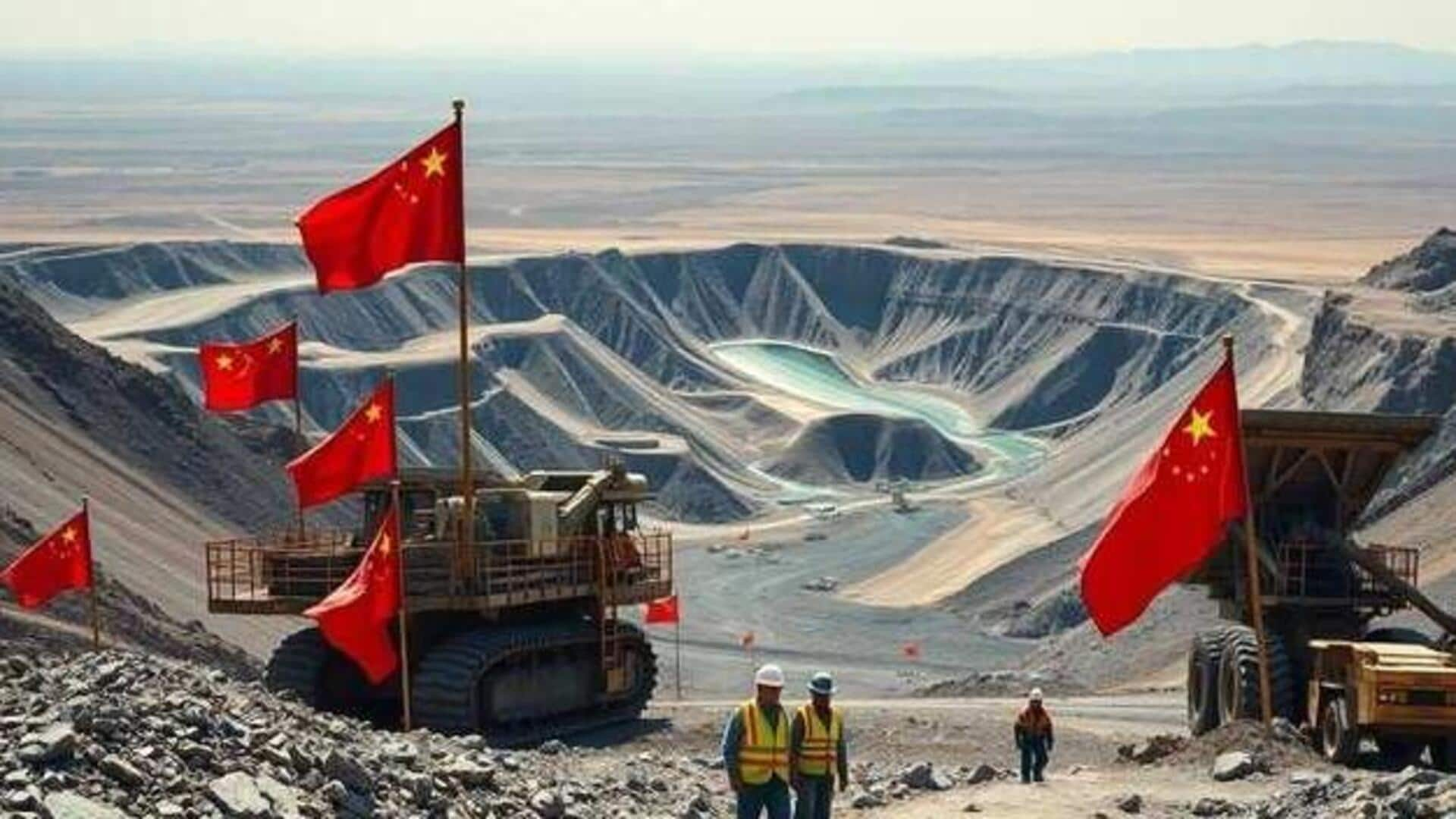
China restricts rare earth exports, targeting defense and semiconductors sectors
What's the story
China has tightened its rare earth export controls, targeting defense and semiconductor users. The move comes as part of a broader effort to expand restrictions on processing technology and curb unauthorized overseas cooperation. The Ministry of Commerce's announcement clarifies and expands sweeping measures first introduced in April, which had resulted in global shortages before deals with Europe and the US resumed shipments.
Market influence
China's dominance in rare earth market
China dominates the global rare earth market, accounting for about 60% of mine production and 90% of processed and permanent magnet output. These materials are critical for a wide range of products, from electric vehicles to aircraft engines and military radars. The new restrictions expand existing bans on exporting technology used to make rare earth magnets to include more types of magnets.
Export regulations
New licensing requirements and restrictions
The new regulations also impose a licensing requirement on equipment used to recycle rare earths, adding it to China's already extensive list of restricted processing technologies. Overseas manufacturers using any Chinese components or machinery are now required to apply for licenses to export controlled items. The ministry has also clarified that overseas defense users will not be granted licenses, while applications related to advanced semiconductors will be approved on a case-by-case basis.
International restrictions
Prohibition on foreign collaboration for Chinese companies
Chinese companies operating abroad are also prohibited from collaborating with foreign firms on rare earths without the ministry's permission. The move is part of China's broader strategy to tighten its grip on the global rare earth market and ensure these critical materials are not used for defense or advanced semiconductor purposes without proper oversight.